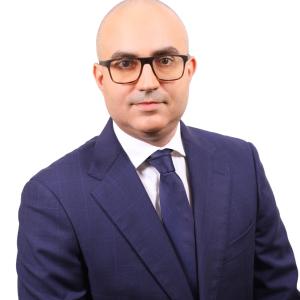The United Nations on the frontline in the fight against hate speech
18 June 2023
Op-ed by Ahmed Ben Lassoued,
Director, United Nations Information Centre for the Gulf Countries (UNIC Manama)
This year marks the 75th anniversary of both the Universal Declaration of Human Rights and the Convention of the Prevention and Punishment of the Crime of Genocide. It is an opportunity to recall that the worst mass atrocities in history were often fueled by hate speech towards parts of the population, including vulnerable groups, leading to or reinforcing discrimination, stigma and marginalization. Moreover, we must always remember that these horrific crimes were not inevitable. Unfortunately, too often, the desperate pleas of the victims went unheard, partially because they had been dehumanized as consequence of hate speech.
Remembering the past is crucial to safeguarding the future. This is particularly relevant today as the world witnesses an alarming resurgence of xenophobia, racism, stigmatization, and intolerance in general. What's even more concerning is that new communication technologies have made the impact of hatred potentially more devastating than ever. Social media, for instance, can spread hate speech like wildfire, dividing people and threatening global peace. And let us make no mistake: no community, country or region of the world is immune to the irrationality of hatred, including online.
The United Nations has a long history of mobilizing the world against hatred of all kinds to defend human rights and advance the rule of law. The impact of hate speech extends to various areas the UN focuses on, including protecting human rights, preventing atrocities, fostering peace, achieving gender equality, and supporting children and youth.
To tackle the growing trends of xenophobia, racism, intolerance, violent misogyny, antisemitism and anti-Muslim hatred around the world, UN Secretary-General António Guterres launched in 2019 the United Nations Strategy and Plan of Action on Hate Speech. This first UN-wide initiative on hate speech is our comprehensive framework for tackling the causes and impacts of hate speech, in line with international human rights standards. Since then, United Nations country teams on the ground have been confronting hate speech by implementing education initiatives, positive speech campaigns, research to understand and address root causes, and promoting inclusion and equal rights.
In response to the COVID-19 pandemic, in 2020 the UN Department of Global of Global Communications launched “Verified”, a global initiative aimed at combatting COVID-19 misinformation, which is often paired with fear-mongering and hateful content. "Verified" collaborates with UN agencies, influencers, civil society, businesses, media organizations and social media platforms to spread trusted and accurate information.
A significant milestone in the battle against hate speech was marked by the UN General Assembly in 2021, when it adopted a resolution promoting interreligious and intercultural dialogue and tolerance to counter hate speech. Additionally, June 18 was designated as the International Day for Countering Hate Speech.
And last but not least, the UN Secretary-General launched last week an essential policy brief on information integrity on digital platforms, calling for guardrails to address the “clear and present global threat” of online hate speech, mis- and disinformation. Speaking at a press conference, Mr Guterres stressed the need for coordinated international action to make the digital space safer and more inclusive while vigorously protecting human rights.
These initiatives demonstrate that we are not powerless in the face of hate speech. The UN is leading the charge, but collective efforts are essential to raise awareness about the dangers of hatred and work together to prevent and eradicate it in all its forms. As we observe the International Day for Countering Hate Speech, let's renew our commitment to ending this toxic and destructive phenomenon while fostering inclusive, just, and peaceful communities that value and protect the rights and dignity of all individuals.

Previously, he worked with the United Nations in various development and humanitarian settings as well as for the Government of Tunisia and the media. Mr. Ben Lassoued has developed and implemented multimedia information campaigns and communications strategies, including crisis communications. He has built strong partnerships with United Nations agencies, governmental institutions, civil society organizations, and the private sector.
Mr. Ben Lassoued is a former student of contemporary philosophy (Magistère) at the Ecole Normale Supérieure. He also holds a research master’s degree in history of philosophy from the Paris-Sorbonne University.

